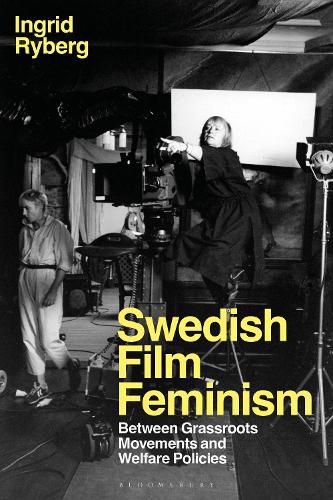Readings Newsletter
Become a Readings Member to make your shopping experience even easier.
Sign in or sign up for free!
You’re not far away from qualifying for FREE standard shipping within Australia
You’ve qualified for FREE standard shipping within Australia
The cart is loading…






Swedish Film Feminism is the first in-depth study of the feminist film movement in Sweden in the 1970s and 1980s. Drawing from a rich and largely overlooked audiovisual and textual archive, the book maps out the political and aesthetic features of this national film history, unpacking how the imaginary of Sweden's gender equality both restricted and enabled women's creative agency and artistic output during the Swedish welfare era.
In addition to delineating the diverse initiatives through which film feminism materialized in Sweden, the book offers detailed case studies of production contexts that demonstrate the complexities of the era's progressive climate. Intervening in current critical interrogations of Swedish exceptionalism, Ingrid Ryberg examines films such as the satirical short Mai Zetterling's Stockholm (Mai Zetterling, 1978), the documentary "Woman in the Middle of the World" (Mona Sjoestroem and Ulf Hultberg, 1976), and the lesbian short Eva and Maria (Mary Eisikovits, Marie Falksten, and Annalena OEhrstroem, 1983). Beyond filling a historical gap by restoring the neglected Swedish case, Swedish Film Feminism challenges dominant canons, backstories, and frameworks in feminist film historiography, introducing analytical tools and reading strategies to reconsider women's film histories that fall outside received parameters.
The eBook editions of this book are available open access under a CC BY-NC-ND 4.0 licence on bloomsburycollections.com. Open access was funded by Riksbankens Jubileumsfond.
$9.00 standard shipping within Australia
FREE standard shipping within Australia for orders over $100.00
Express & International shipping calculated at checkout
Stock availability can be subject to change without notice. We recommend calling the shop or contacting our online team to check availability of low stock items. Please see our Shopping Online page for more details.
Swedish Film Feminism is the first in-depth study of the feminist film movement in Sweden in the 1970s and 1980s. Drawing from a rich and largely overlooked audiovisual and textual archive, the book maps out the political and aesthetic features of this national film history, unpacking how the imaginary of Sweden's gender equality both restricted and enabled women's creative agency and artistic output during the Swedish welfare era.
In addition to delineating the diverse initiatives through which film feminism materialized in Sweden, the book offers detailed case studies of production contexts that demonstrate the complexities of the era's progressive climate. Intervening in current critical interrogations of Swedish exceptionalism, Ingrid Ryberg examines films such as the satirical short Mai Zetterling's Stockholm (Mai Zetterling, 1978), the documentary "Woman in the Middle of the World" (Mona Sjoestroem and Ulf Hultberg, 1976), and the lesbian short Eva and Maria (Mary Eisikovits, Marie Falksten, and Annalena OEhrstroem, 1983). Beyond filling a historical gap by restoring the neglected Swedish case, Swedish Film Feminism challenges dominant canons, backstories, and frameworks in feminist film historiography, introducing analytical tools and reading strategies to reconsider women's film histories that fall outside received parameters.
The eBook editions of this book are available open access under a CC BY-NC-ND 4.0 licence on bloomsburycollections.com. Open access was funded by Riksbankens Jubileumsfond.